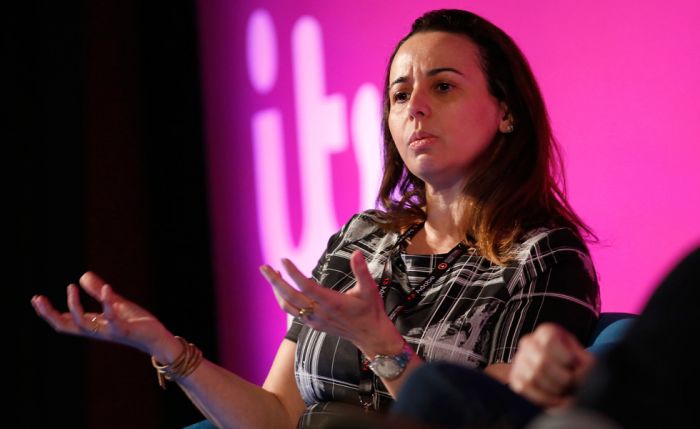The uncomfortable truths about marketing: agency siloes, image problems and data obsession

Fragmented agency relationships
Speaking at a talk hosted by The Marketing Society at Advertising Week Europe yesterday (20 April), Mark Given, director of planning and proposition at Sainsbury’s, said that when he started his career in marketing as an assistant brand manager for Pringles, his job was very straightforward in terms of handling agency relationships. Nowadays, brands are expected to deliver “an omnichannel customer experience” by joining up the dots – something that Given argues is increasingly difficult due to fragmented agency relationships.
“I would argue that our industry is filled with siloes that are not organised around putting the customer at the heart of decision making,” he said.
“In my early career, I had one or two agency relationships to manage at most. I don’t think anyone believes you can have one agency that does everything, but neither can clients in my position manage 10 to 15 different agencies. What we need is for agencies to work together.”
However, Given said most agencies are not willing to collaborate, despite what they might say.
“The reality of the commercial models is such that while you [agencies] will tell us that you’re happy to work in a number of different structures, the reality of the amount of competition between agencies is that you fundamentally don’t want to [collaborate],” he explained.
Given argued that agencies need to stop obsessing about specialisms and channels and put the customer first, concluding: “I don’t care about digital first, it needs to be customer first. What are the most pressing customer issues and how are you addressing this as a client or agency?”
Tackling marketing’s image problem
Dominic Grounsell, global marketing director at foreign exchange company Travelex, believes marketing’s image problem is the elephant in the room. He said the industry is increasingly “data-driven and technology-orientated”, meaning brands wanting to hire a “fundamentally different” type of marketer compared to a decade ago.
“It’s not about throwing out the old skills like the creative and conceptual thinking, it’s more of a balance of being able to deal with the technical side of marketing and managing complex digital channels. These tend to be people with hard skills and backgrounds in engineering, computer science, maths and psychics,” he explained.
READ MORE: How to market marketing[1]
Grounsell added that bringing in these new types of marketers is “bloody hard”, due to misconceptions among graduates about what marketing involves. What’s more, he believes it’s the industry’s own fault that this has happened in the first place.
“Despite marketing being a very broad, diverse and interesting topic, all we talk about every day is TV ads and creative. Frankly, I spend about 5% of my time thinking about creative, the rest of the time I’m thinking about strategy, propositions, customer insight, which all lead up to a great advert,” he said.
“We celebrate winning a Cannes Lions award, but we don’t worry [enough] about a strategy that gets us into Harvard Business Review.”
“When I try to get people into our industry, trying to explain we’re not the colouring-in team is really hard. And in a lot of businesses, we are.”
Dominic Grounsell, global marketing director, Travelex
To solve this problem, the industry needs better communicate what marketing actually entails.
“We need to tell more stories about the contribution [marketing] makes to business in a broader sense, rather than just the five-second TV ad. Those stories are truly inspirational and drive business performance. We don’t talk about them enough, because we talk about who won the Christmas TV ad,” he commented.
Halting the data obsession
Big data has undoubtedly become increasingly important for marketers. However, Patricia Corsi, VP brand building of foods and beverages at Unilever, is worried it is turning into something that is “larger than life”.
“We have got to a situation where people say: ‘Let’s see what the algorithm tells us.’ There is something that is about the art of it. I don’t like the route that is being taken that is all about the logic and big data,” she said.
“The other thing that concerns me is the impact this is having on the new generation of marketers that we’re leading. We are forcing them to not be able to take decisions without data. An important part of marketing is to try something and not feel trapped.”
As a result, more marketers need to rely on their instincts and take risks. “There needs to be a balance. Data can give you good insight, but there needs to be some magic and art in there too.”
References
- ^ READ MORE: How to market marketing (www.marketingweek.com)









